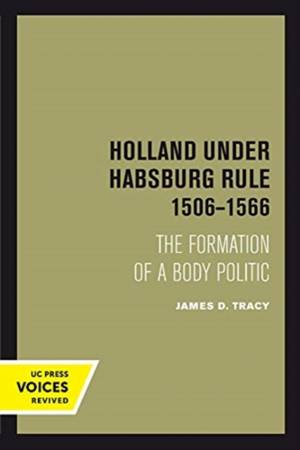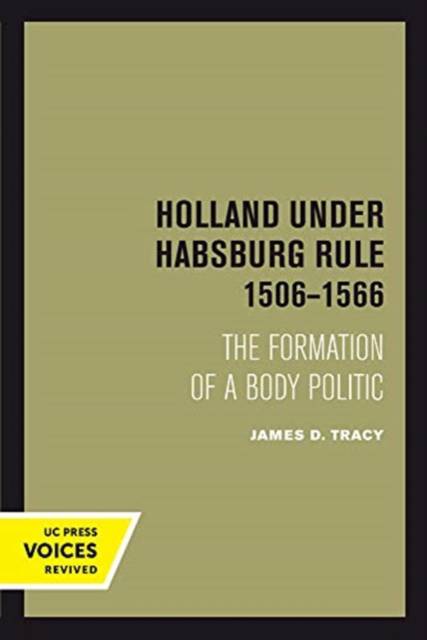
- Retrait gratuit dans votre magasin Club
- 7.000.000 titres dans notre catalogue
- Payer en toute sécurité
- Toujours un magasin près de chez vous
- Retrait gratuit dans votre magasin Club
- 7.000.0000 titres dans notre catalogue
- Payer en toute sécurité
- Toujours un magasin près de chez vous
Holland Under Habsburg Rule, 1506-1566
The Formation of a Body Politic
James D Tracy
Livre broché | Anglais
67,95 €
+ 135 points
Description
Under what conditions were limited forms of self-government possible in medieval and early modern Europe? While many historians have sought an answer by investigating the development of parliamentary institutions in emerging national monarchies and the wider autonomy enjoyed by various city-states within their own borders, James D. Tracy concentrates instead on a relatively neglected phenomenon at an intermediate level of political organization--the self-governing province. Focusing on the province of Holland during the reigns of Charles V and Philip II (1506-1566), Tracy argues convincingly that Holland effectively underwent an apprenticeship in self-government. The seven provinces of the Dutch Republic--among which Holland was the richest and most populous--were the first in history to govern themselves by a consensus among their towns and nobles. The foundations for this internal cohesion were put in place long before the Dutch Revolt; first by medieval provincial dynasties, then by the dukes of Burgundy, and finally by the House of Habsburg. At the turn of the sixteenth century, Holland was urbanized to a surprising degree, with over forty percent of its population residing in some thirty small and mid-sized towns. Forced by external threats to rise above their economic rivalries, the towns joined together through the forum of the provincial parliament, or States of Holland, which came to assume a primary role in the management of public finances. While noting that the growing autonomy of Holland did not make the Dutch Revolt inevitable, Tracy points out that the revolt could hardly have succeeded without provinces that already had a tradition of managing their own affairs. In the broader context of European political institutions, the circumstances that permitted the provincial states to assume many of the functions of government illustrate not only the capacity for self-government but also the formation of genuine body politics. This title is part of UC Press's Voices Revived program, which commemorates University of California Press's mission to seek out and cultivate the brightest minds and give them voice, reach, and impact. Drawing on a backlist dating to 1893, Voices Revived makes high-quality, peer-reviewed scholarship accessible once again using print-on-demand technology. This title was originally published in 1990.
Spécifications
Parties prenantes
- Auteur(s) :
- Editeur:
Contenu
- Nombre de pages :
- 342
- Langue:
- Anglais
Caractéristiques
- EAN:
- 9780520304031
- Date de parution :
- 23-10-18
- Format:
- Livre broché
- Format numérique:
- Trade paperback (VS)
- Dimensions :
- 152 mm x 229 mm
- Poids :
- 503 g

Les avis
Nous publions uniquement les avis qui respectent les conditions requises. Consultez nos conditions pour les avis.






